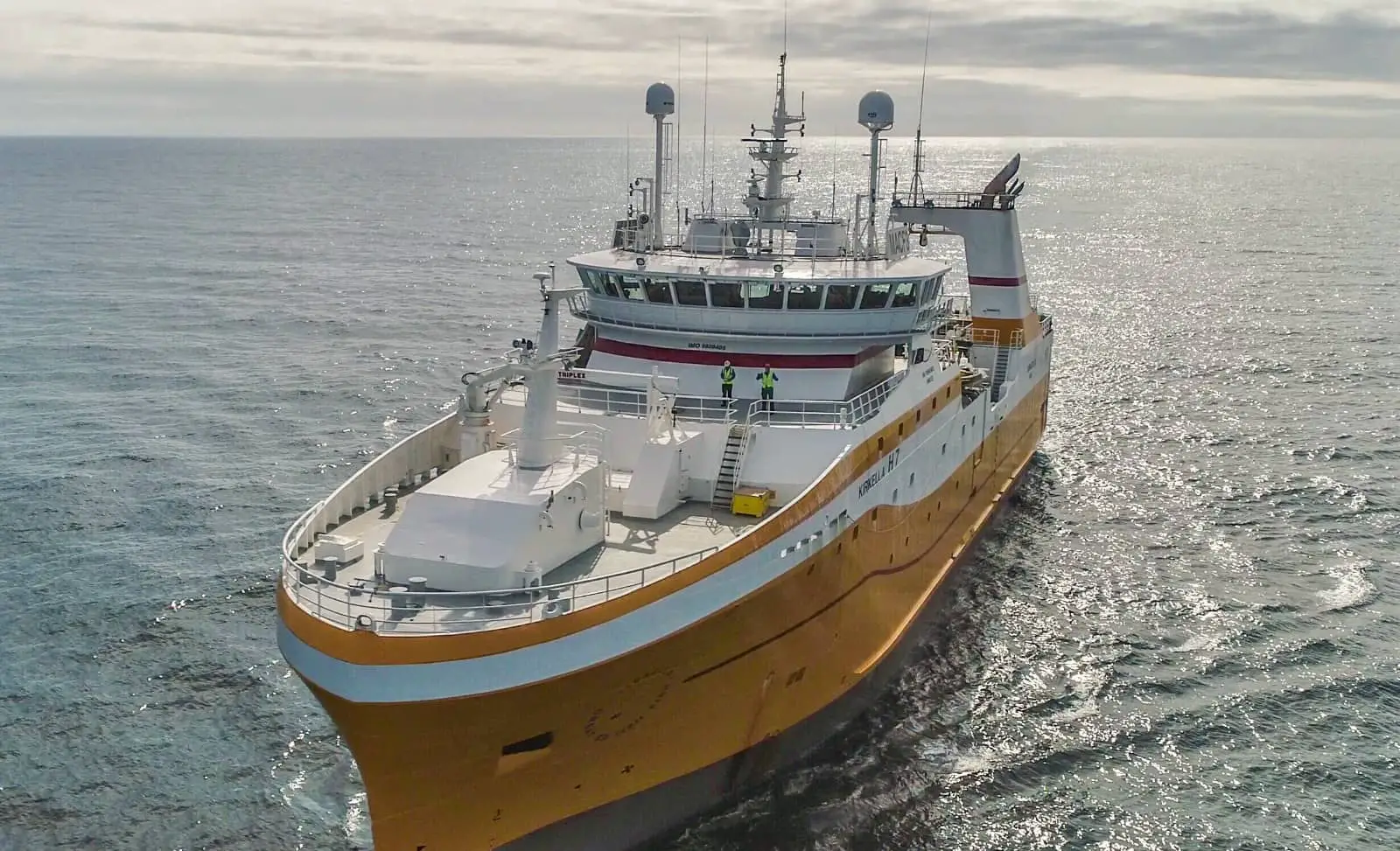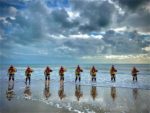Later this month Isle of Wight Conservative MP, Bob Seely, will be playing his part in preparing and presenting a Bill to Parliament that seeks to regulate and limit the practice of bottom trawling in marine protected areas.
The habitats of marine life in certain parts of the Isle of Wight coast are protected by ‘Marine Conservation Zones’, as announced in 2019.
Concerns over super trawlers
Later the same year Islanders raised concerns when a ‘super trawler’ was spotted off the coast of the Island, sparking 1,600 signatures from Islanders to a national petition calling for super trawlers to be banned from fishing in UK waters. The petition attracted over 25,000 signatures, but the Government responded by saying,
“The Government currently has no immediate plans to seek to ban super trawlers from UK waters. The UK is a global leader in the fight to protect our seas, with our ‘Blue Belt’ of protected waters, nearly twice the size of England.”
Grayling: Damages one of our most important carbon sinks
However, yesterday (Tuesday) Chris Grayling MP presented the first reading of a Bill to protect marine habitats.
He said,
“The failure to protect the habitats beneath our seas not only puts even more pressure on a vast range of creatures but damages one of our most important carbon sinks.”
Enormous power used by trawlers to scoop up everything
Mr Grayling went on to explain,
“The area at the bottom of our seas, often populated by the smallest creatures that make up an important part of the natural food chains in our oceans, remains open to large-scale trawlers that drag nets along the bottom and destroy much of what is in their path.
“Some of the largest international vessels that do this are spectacularly damaging in the approach that they take, as they use enormous power to scoop up everything as they go and they have equipment that covers a vast area underwater.”
Importance of seagrass
The importance of seagrass was also raised. As reported by News OnTheWight this week, a project to reintroduce seagrass in the Solent is still on track despite the recent storms.
Mr Grayling told the House,
“It is not just fish and other marine species that suffer when bottom trawling takes place. Plants such as kelp and seagrass are important habitats in their own right, but they are also important absorbers of carbon, and planting new areas with both is, and should be, an important part of tackling carbon emissions.
“However, there is no point doing that if bottom trawling destroys underwater plants such as kelp, and in our marine protected areas that simply should not happen.”
The Bill: A ban on bottom trawling in marine protected areas
He explained the Bill would have the effect of placing a duty on the Secretary of State, within 12 months of it receiving Royal Assent, to lay before Parliament regulations that ban bottom trawling in our marine protected areas.
Grayling ended his speech by saying,
“We must make sure that our marine protected areas are genuinely, absolutely and unreservedly marine protected areas, which is what they are supposed to be.”
You can watch Chris Grayling’s presentation to the House via YouTube below or read the transcript via Hansard.
IW MP involved in second reading
The Bill (Bill 263) will be prepared and presented to Parliament on 18th March by the MPs Chris Grayling, Bob Seely, Sir Oliver Heald, Barry Gardiner, Andrew Selous, Neil Parish and Kerry McCarthy.





